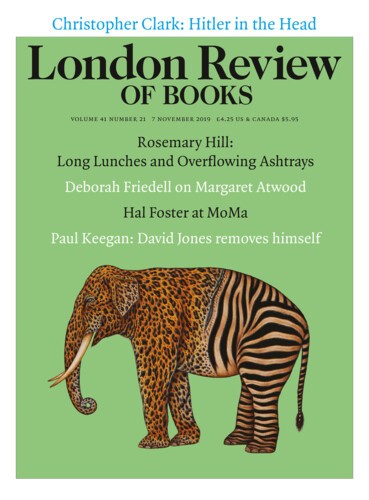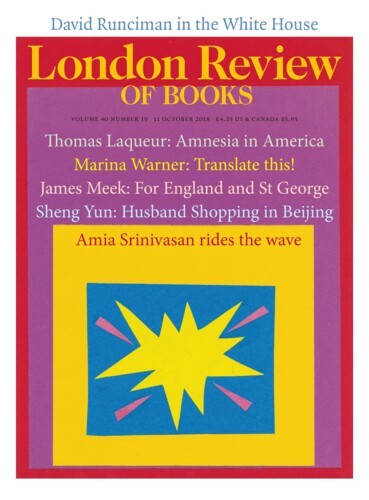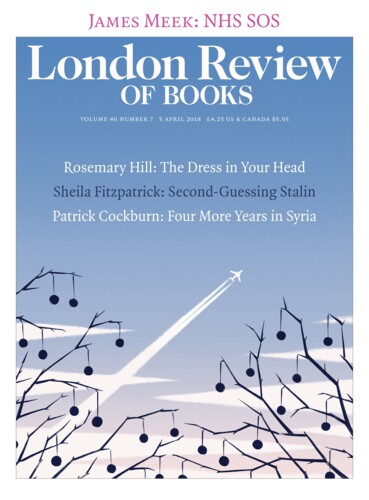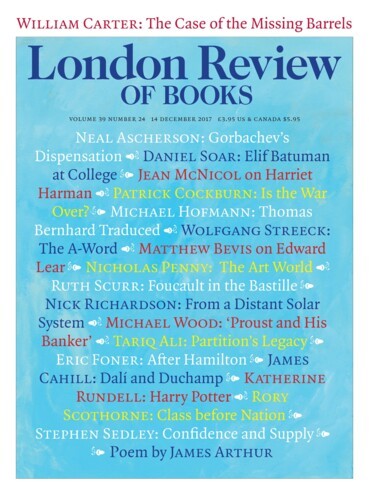Choke Point: In Dover
Patrick Cockburn, 7 November 2019
Dover is popular with reporters on the prowl for Brexit stories. Border Force patrol ships – decked out with high-tech radar sensors and painted navy grey – hug the White Cliffs in pursuit of dinghies carrying immigrants from France: a defiant image of Britain repelling an external threat. From the top of one of the hills overlooking the town you look down on the Eastern Docks,...





